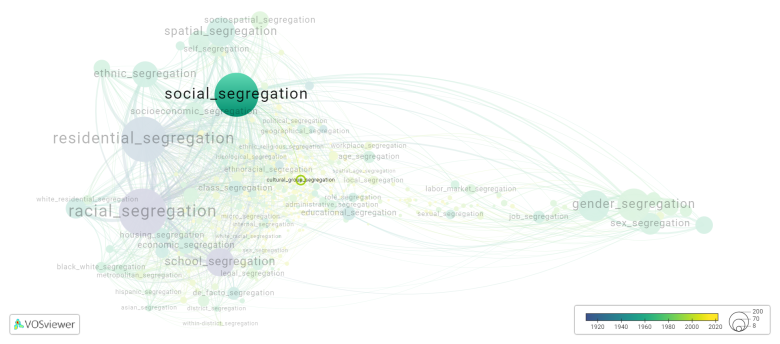Cultural group segregation: Difference between revisions
(Creating page) |
(Creating page) |
||
| Line 10: | Line 10: | ||
Efforts to reduce cultural group segregation involve promoting diversity, inclusion, and understanding among different communities. This can include initiatives such as diversity training, promoting multicultural events and activities, and creating policies that promote equality and integration. Ultimately, fostering a more inclusive society can help to break down barriers and promote harmonious coexistence among cultural groups. | Efforts to reduce cultural group segregation involve promoting diversity, inclusion, and understanding among different communities. This can include initiatives such as diversity training, promoting multicultural events and activities, and creating policies that promote equality and integration. Ultimately, fostering a more inclusive society can help to break down barriers and promote harmonious coexistence among cultural groups. | ||
==See also== | ==See also== | ||
==Related segregation forms== | |||
Cultural group segregation is frequently discussed in the literature with the following segregation forms: | |||
[[social segregation]] | |||
[[File:cultural_group_segregation.png|780x780px]] | |||
For the complete network of associated segregation forms, see: | |||
year of publication https://tinyurl.com/2235lkhw | |||
Louvain clusters https://tinyurl.com/2d8wg5n3 | |||
betweenness centrality https://tinyurl.com/223udk5r | |||
disciplines where segregation forms first appeared https://tinyurl.com/244d8unz | |||
==References== | ==References== | ||
==Notes== | ==Notes== | ||
Revision as of 14:34, 27 September 2024
Date and country of first publication[1]
2006
Australia
Definition
Cultural group segregation refers to the separation of individuals or communities based on cultural or ethnic differences. This can manifest in various ways, such as physical separation in neighborhoods or communities, exclusion from social or recreational activities, or even within institutions like schools and workplaces.
Cultural group segregation can be detrimental as it can lead to feelings of isolation, discrimination, and inequality. It can also hinder social cohesion and understanding between different cultural groups.
Efforts to reduce cultural group segregation involve promoting diversity, inclusion, and understanding among different communities. This can include initiatives such as diversity training, promoting multicultural events and activities, and creating policies that promote equality and integration. Ultimately, fostering a more inclusive society can help to break down barriers and promote harmonious coexistence among cultural groups.
See also
Related segregation forms
Cultural group segregation is frequently discussed in the literature with the following segregation forms:
For the complete network of associated segregation forms, see:
year of publication https://tinyurl.com/2235lkhw
Louvain clusters https://tinyurl.com/2d8wg5n3
betweenness centrality https://tinyurl.com/223udk5r
disciplines where segregation forms first appeared https://tinyurl.com/244d8unz
References
Notes
- ↑ Date and country of first publication as informed by the Scopus database (December 2023).
At its current state, this definition has been generated by a Large Language Model (LLM) so far without review by an independent researcher or a member of the curating team of segregation experts that keep the Segregation Wiki online. While we strive for accuracy, we cannot guarantee its reliability, completeness and timeliness. Please use this content with caution and verify information as needed. Also, feel free to improve on the definition as you see fit, including the use of references and other informational resources. We value your input in enhancing the quality and accuracy of the definitions of segregation forms collectively offered in the Segregation Wiki ©.
Cultural group segregation appears in the following literature
Forrest J., Poulsen M., Johnston R. (2006). Peoples and spaces in a multicultural nation: Cultural group segregation in metropolitan Australia. Espace-Populations-Societes, 151-164. Universite des Sciences et Technologiques de Lille.https://doi.org/10.4000/eps.1049

